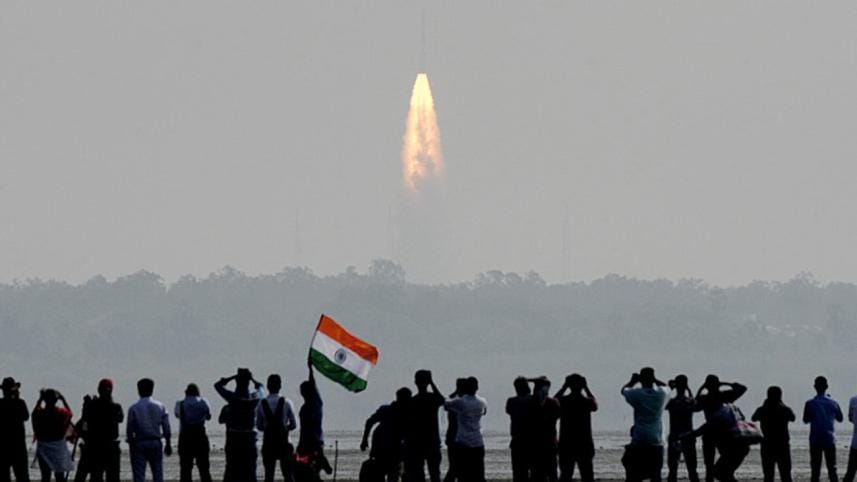India begins countdown for launching 31 satellites

A 28-hour countdown began today for the launch of the Indian Space Research Organization's 100th satellite along with 30 others, including 25 foreign satellites, in a single mission on Friday.
A 44.4-metre tall rocket, ISRO's trusted old workhorse "PSLV-C40," will lift off for its 42nd mission from a launch pad of the organisation's Satish Dhawan Space Centre at Sriharikota, 110km from southern city of Chennai at 9:28am on Friday. The rocket will carry the weather observation 'Cartosat-2' series satellite and 30 co-passengers together weighing about 1323 kg.
With the Mission Readiness Review committee and Launch Authorisation Board of ISRO having cleared the countdown for the launch, the Indian space agency on Thursday said "the 28-hour countdown activity of PSLV-C40/Cartosat2 Series Satellite Mission has started at 05:29 hours IST today (Thursday)".
The co-passenger satellites consist of one micro and nano satellite each from India as well as three micro and 25 nano satellites from Canada, Finland, France, South Korea, Britain, and the United States. The 28 international customer satellites are being launched as part of the commercial arrangements between ISRO and its commercial arm 'Antrix Corporation Ltd'.
Seeking to grab a major slice of the international market of commercial satellite launch worth billions of dollars, ISRO has already earned a reputation of being the most cost-effective launchers of satellites.
The images sent by Cartosat-2 series satellite will be useful for cartographic applications, urban and rural applications, coastal land use and regulation, road network monitoring, water distribution, creation of land use maps and change detection to bring out geographical Land Information Systems and Geographical Information System applications.
According to ISRO, the Cartosat-2 series satellite launch is a follow-on mission with the primary objective of providing high resolution scene specific spot imageries. It carries panchromatic and multi-spectral cameras capable of delivering high resolution data.
Tomorrow's launch also marks the first for ISRO this year after the unsuccessful mission of navigation satellite IRNSS-1H on August 31 last year when the heat shield of the rocket did not separate in the final leg of the launch sequence.



 For all latest news, follow The Daily Star's Google News channel.
For all latest news, follow The Daily Star's Google News channel.
Comments